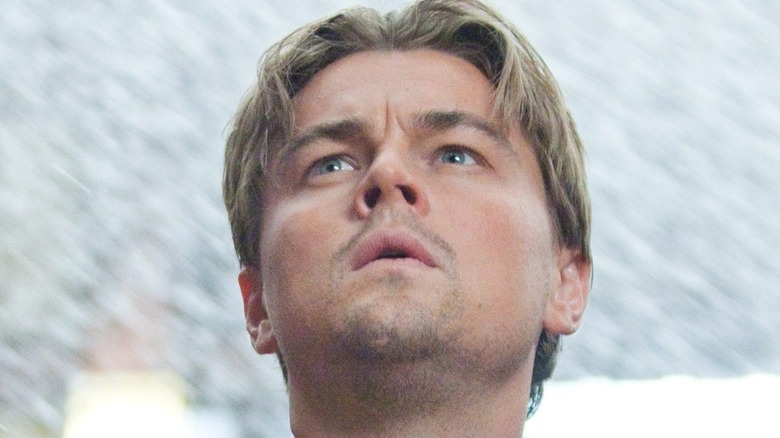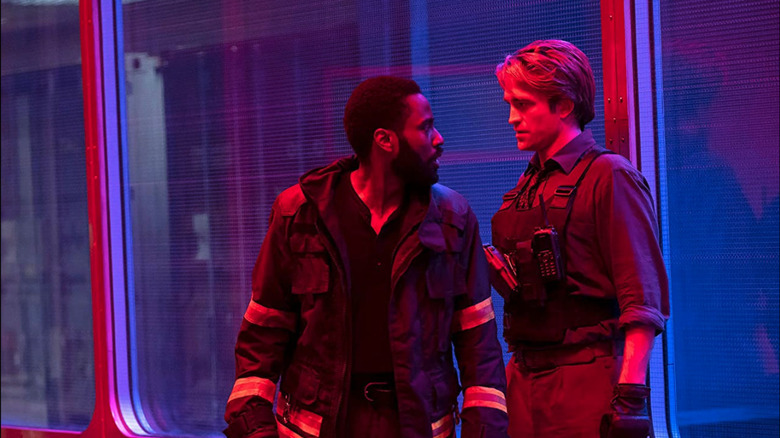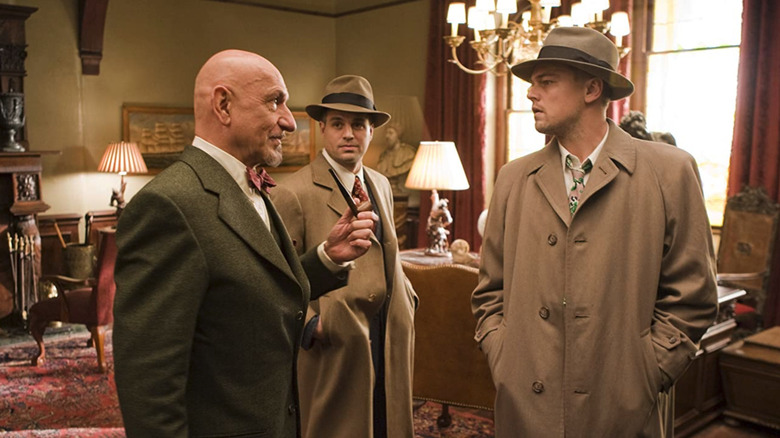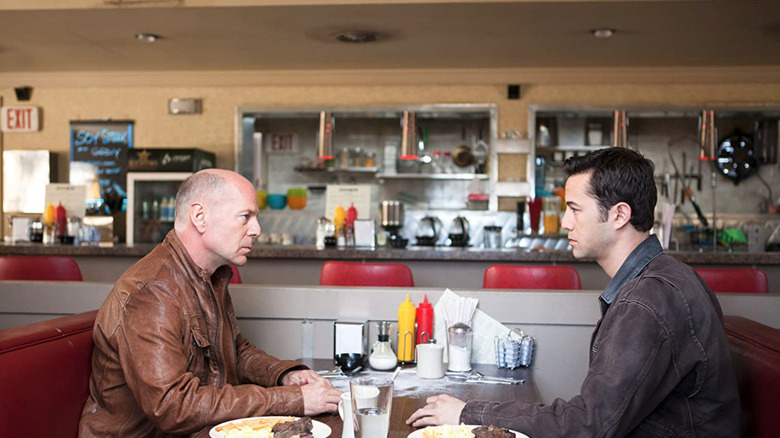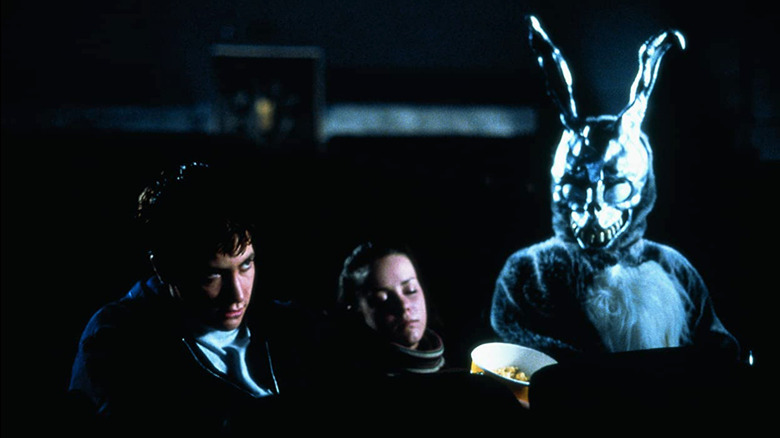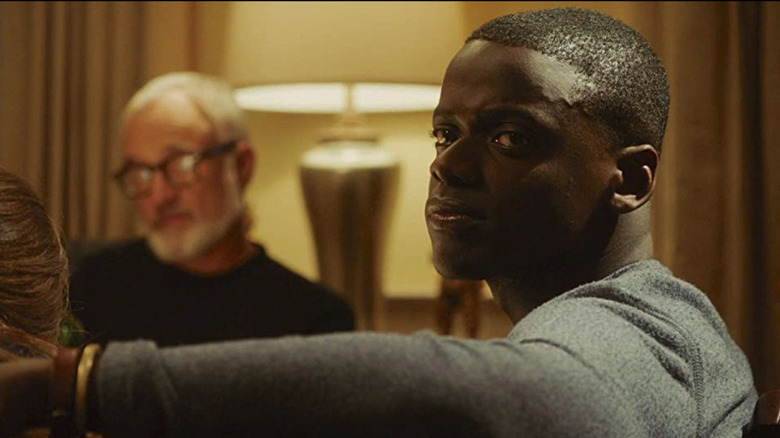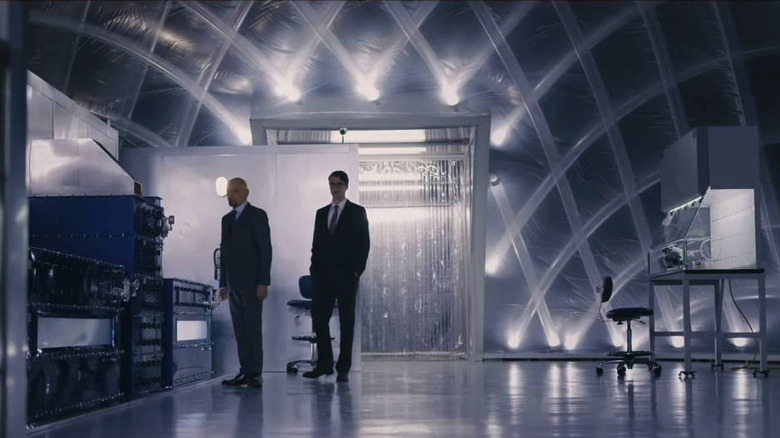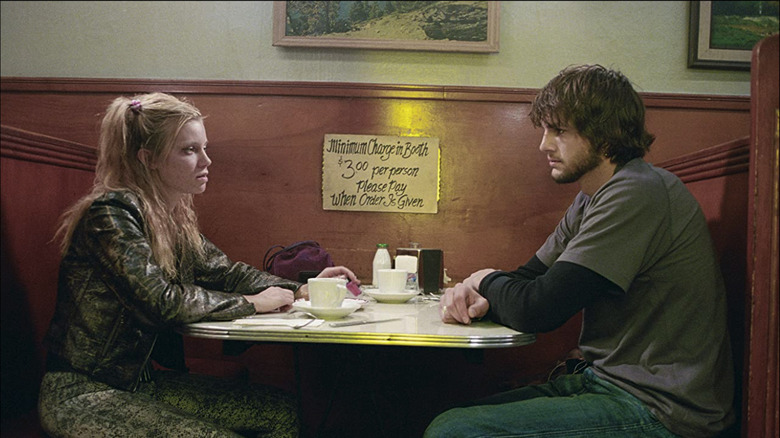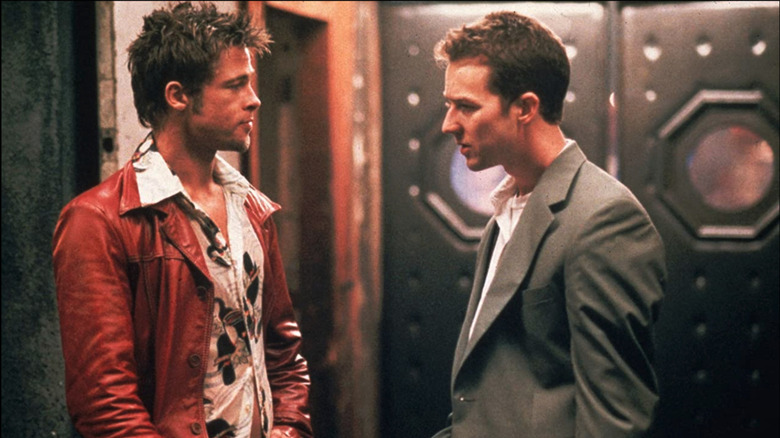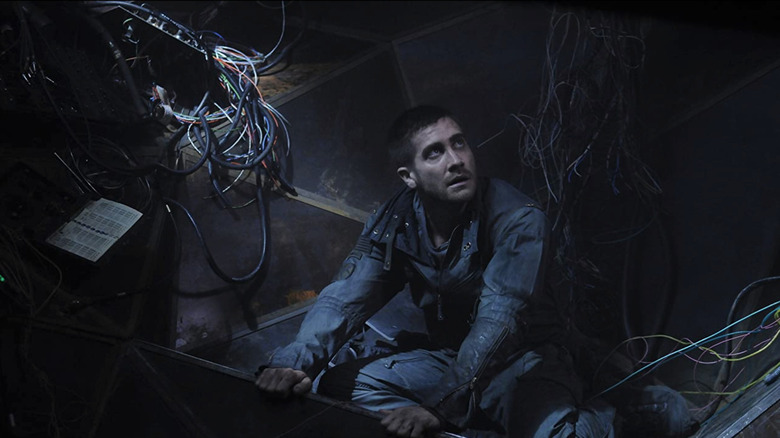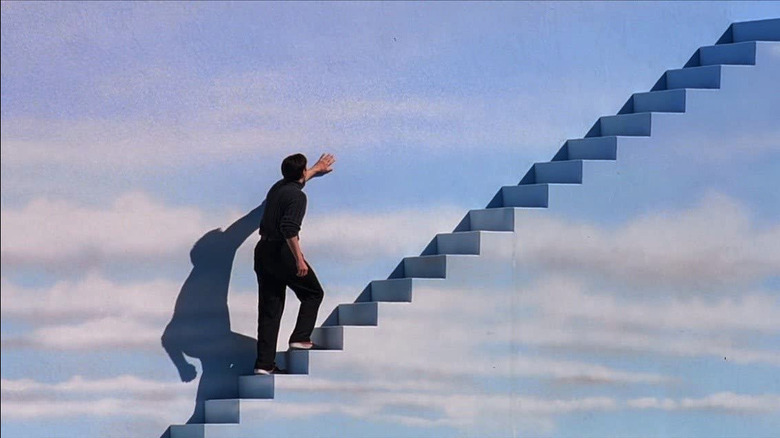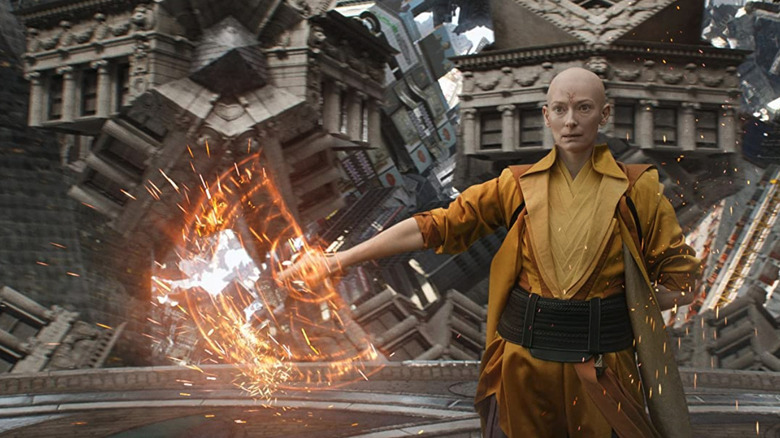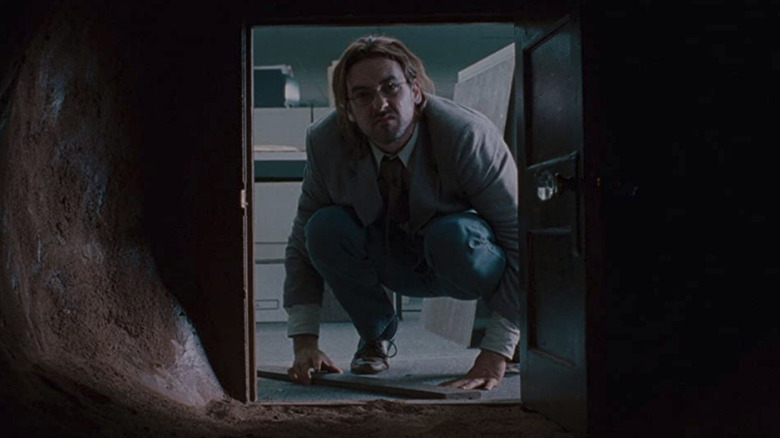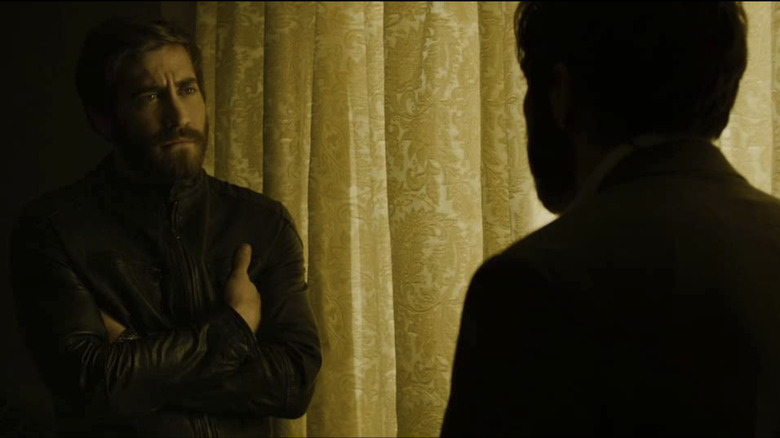Movies Like Inception That Are Definitely Worth Watching
Christopher Nolan's love for metaphysical themes transcends his whole filmography. His movies question reality and identity and dive deep into complicated existential tales built around memories, dreams and time. He's also known for his sleek images and larger-than-life soundscapes.
If the Dark Knight Trilogy put Christopher Nolan on the map as a film director who could work with big studios, the blockbuster "Inception" (2010) that cemented his storytelling style in the general public's eye. "Inception" blends genres as a sci-fi thriller heist movie, and its star-studded cast includes Leonardo DiCaprio as tormented hustler Dom, who's joined by a rag-tag crew with A-list actors such as Elliot Page, Joseph Gordon Levitt, Sir Michael Caine, Tom Hardy and Marion Cotillard.
"Inception" was a hit for a multitude of reasons, ranging from its striking visual effects to its mind-boggling story, in which Dom and his crew infiltrate multiple, interconnected layers of people's dreams. Its ambiguous ending, with Dom's spinning top seemingly spinning forever, left the public hungry for more. Whether you were blown away by its plot, its trippy visuals, or the performances of its excellent cast, there are many more movies to add to your watch list if you're looking for that "Inception"-type thrill.
Tenet
Christopher Nolan's latest film, "Tenet" (2020), is another mind-bending sci-fi action thriller. Starring John David Washington as the Protagonist, it also features Nolan favorite Sir Michael Caine, as well as Robert Pattinson and Sir Kenneth Brannagh. As many reviews note, "Tenet" might be the most Nolan-y movie of Nolan's filmography: The complex plot revolves around time travel, with the Protagonist being recruited in an organization called Tenet and racing to stop Brannagh's larger-than-life villain Andrei Sator from destroying the flow of time in the future.
The mechanics of time travel in "Tenet," which involve "inverted entropy," are intensely complicated, but are mostly based on real science, even though they ultimately remain science fiction. "Tenet" is packed with intense action scenes and intricate relationships between characters, with great performances by Pattinson in the role of Neil, the Protagonist's handler, as well as Elizabeth Debicki as Sator's wife Kat.
Shutter Island
Based on Dennis Lehane's 2003 novel by the same name, "Shutter Island" (2010) is a psychological thriller directed by Martin Scorsese. It stars Leonardo DiCaprio as Deputy U.S. Marshal Teddy Daniels and Mark Ruffalo as his partner Chuck, who are both tasked with investigating a mental institution on Shutter Island following the escape of a patient. From the beginning of "Shutter Island," things do not seem to be as they appear: The hospital staff is not cooperative with the investigation, and Teddy seemingly starts to lose his mind.
DiCaprio offers a stunning performance as a tormented World War II veteran going mad on the moody, stormy island. Filled with unexpected turns, "Shutter Island," much like "Inception," is the kind of movie that you want to watch a second time. Scorsese's skillful direction shines, and the plot twist at the end will make you see the movie from a whole new perspective. The performances also benefit from a re-watch.
Looper
Directed by Rian Johnson, "Looper" (2012) is a science-fiction action thriller that involves time travel and assassins. If that combination sounds interesting, that's because it is; the movie was a critical and box-office success. It stars Joseph Gordon-Levitt as Joe, an assassin, or "looper," who kills targets that are sent back in time by the crime syndicate he works for. Loopers' contracts end when their old self is sent back to be killed by their young self, thus closing the loop. And yet, Joe fails at this particular task when he's confronted with Old Joe, played by Bruce Willis.
Old Joe makes a mess in Young Joe's world, forcing Young Joe to question his reality. What follows is a string of plot twists, drama and different takes on time travel, with plenty of action scenes that earn the film's R rating. The makeup and special effects used on Gordon-Levitt can be distracting, but in the end, his resemblance to Willis is striking.
Donnie Darko
"Donnie Darko" (2001) was Richard Kelly's first feature film, an indie psychological thriller — and, almost instantly, a cult classic – that debuted at Sundance alongside another Nolan classic, "Memento." Set in 1988, the movie follows Donnie, a deranged, sleepwalking teenager played by Jake Gyllenhaal, who has visions of a character wearing a creepy rabbit costume named Frank. Frank manipulates Donnie into committing a series of crimes, such as setting fire to a motivational speaker's house, by telling him that the end of the world is coming in 28 days, 6 hours, 42 minutes and 12 seconds.
"Donnie Darko" marries the horror-like pacing of a psychological thriller with the awkwardness of teenage love and friendships. A director's cut was released in 2004, which adds about 20 minutes of material; it doesn't change the plot, but adds some richness to an already intriguing thriller.
Get Out
The line between psychological thriller and horror is thin, and Jordan Peele's directorial debut, "Get Out" (2017), treads it with finesse. Featuring a break-out performance by Daniel Kaluuya, which earned him an Academy Award nomination, the movie follows Chris Washington (Kaluuya), a Black photographer who's nervous about meeting his white girlfriend Rose's (Allison Williams) family for the first time.
Chris has weird encounters with the family's house staff, who are both Black, and with Rose's mom, Missy (Catherine Keener), a hypnotherapist who subjects Chris to an impromptu session to remedy his smoking habit. Rose's family also makes several weird comments about Black people; slowly, Chris' nervousness grows into dread, until he asks Rose to leave. Then, things get really wild. "Get Out" examines both systemic racism and white savior tropes, ending up as both a terrifying film about messing with the human mind and a sharp social satire.
Self/less
Featuring a similar body-hacking technology as "Inception," "Self/less" (2015) is a sci-fi transhumanist thriller directed by Tarsem Singh. It centers around an old real estate tycoon and billionaire named Damian Hale (Ben Kingsley) who is diagnosed with terminal cancer. Seeking immortality, Damian seeks the services of a secret biogenic start-up led by a man named Albright (Matthew Goode). They grow a brand new body in a tank, then fake their client's death and transfer their consciousness into the new, younger body.
Damian's new identity is Edward Kidner, played by Ryan Reynolds, and while he enjoys his newfound freedom in New Orleans for a time, not everything is as great as it appears to be. Edward has several seizure-like episodes, during which he suffers hallucinations, which end up being old memories from Edward's original consciousness — his body is not, in fact, as new and fresh as advertised. At that point, "Self/less" rapidly changes gears and becomes an action pursuit movie, in which Damian searches for the truth about where his new body really came from.
The Butterfly Effect
Messing with time has consequences, as "The Butterfly Effect" (2004) proves. Directed by Eric Bress and J. Mackye Gruber, "The Butterfly Effect" is a science-fiction thriller based on the titular scientific concept: chaos theory suggests even small actions, like a butterfly flapping its wings, can have major effects over time.
In the movie, Evan Treborn (Ashton Kutcher) is a college student who discovers that he can travel back in time to and inhabit his younger self, explaining the blackouts he used to have as a child. He tries to change the course of his and his friends' traumatic childhoods, especially that of childhood sweetheart Kayleigh (Amy Smart), who was abused by her father as a girl. However, every time that Evan intervenes in the past, something changes in the future, creating alternate realities with unintended consequences. As the title suggests, every action has a consequence.
Fight Club
A classic movie for many, David Fincher's "Fight Club" (1999) is a must-see thriller if you love "Inception." Based on Chuck Palahniuk's novel of the same name , "Fight Club" follows an unnamed narrator, played by Edward Norton, who's alienated by his office job and suffers from insomnia. He fakes illnesses to attend support groups, where he meets another fraud, Marla (Helena Bonham Carter). After the narrator's apartment is destroyed in an explosion, he moves in with a soap salesman named Tyler Durden (Brad Pitt), whom he just met on a plane.
The narrator and Tyler start a fight club in a bar basement in a rebellious act against capitalism, which eventually devolves into a terrorist organization called Project Mayhem. Meanwhile, the narrator starts questioning his reality and mental integrity. While it was critiqued for inciting violence back when it came out, "Fight Club" actually reads more like a social critique of toxic masculinity and white supremacy. In 2021, it feels more relevant than ever.
Source Code
Jake Gyllenhaal is at it again in "Source Code" (2011), a science-fiction action thriller directed by Duncan Jones. Gyllenhaal plays U.S. Army captain Colter Stevens, who's sent back in time through an experimental computer reality called Source Code to relive the eight minutes prior to a train bombing. He's tasked with finding the person responsible for the domestic terrorist attack, and is sent back as many times as it takes to find the bomber. He's led by scientist Dr. Rutledge (Jeffrey Wright) and Captain Colleen Goodwin (Vera Farmiga).
The technology is experimental, and while "Source Code" doesn't quite hold up to scrutiny, the film is still an entertaining take on time loops. It has a very human storyline, with Stevens, in a vulnerable performance by Gyllenhaal, coming across as a determined officer hellbent on saving the commuters he gets to know better with every trip back into time.
The Truman Show
If you've ever wondered what a dramatic performance from Jim Carrey looks like, then "The Truman Show" (1998), by Peter Weir, is maybe the example. The psychological dramedy follows Truman Burbank (Carrey), who is, unbeknownst to him, the star of a reality show that is broadcast twenty four hours a day, seven days a week. In addition to the drama of Truman's day-to-day life, "The Truman Show" also offers glimpses behind the scenes, detailing how showrunner Christof (Ed Harris) manipulates everything, from the weather to the traffic to the lines spoken by the extras, in Truman's town.
Truman starts questioning his reality when things go awry around his 30th birthday, including his wife Meryl (Laura Linney) going off-script. Truman's descent into madness, and his search for the truth, result in a movie strongly related to Plato's cave allegory, as well as a beautiful commentary on human perception and reality TV.
Doctor Strange
The Marvel Cinematic Universe took a stylistic detour with the science-fiction action movie "Doctor Strange" (2016). Directed by Scott Derickson, "Doctor Strange" features time loops, reality-bending visual effects that recall those found in "Inception," and an introduction to magic in the MCU. Benedict Cumberbatch is Dr. Stephen Strange, an arrogant neurosurgeon whose hands are crushed in a horrific car accident, bringing an end to his career.
In a last-ditch effort to get his mobility back, Strange visits Kamar-Taj, a temple in the Himalayas. There, he meets the Ancient One (Tilda Swinton), who teaches him the mystic arts. Strange ends up in possession of the Eye of Agamotto, which is the Time Infinity Stone, and uses it to defend his reality against the villain Kaecilius (Mads Mikkelsen). The resulting movie is action-driven, full of kaleidoscopic visual effects that warps the characters' surroundings, and combines magic with science-fiction, leading to one of the most visually interesting movies in the MCU.
Being John Malkovich
More fantasy than science-fiction, "Being John Malkovich" (1999) is a smart and psychedelic movie that takes the audience on a wild ride inside John Malkovich's body. It's the feature film debut of both director Spike Jonze and writer Charlie Kaufman, and it has an all-star cast, starting with Malkovich himself, who's joined by John Cusack, Cameron Diaz and Charlie Sheen.
In "Being John Malkovich," a depressed puppeteer named Craig (Cusack) discovers a portal in an office building that leads to John Malkovich's body, which the occupant can inhabit for 15 minutes. Craig soon shares his discovery with his wife Lotte (Diaz) and his co-worker Maxine (Catherine Keener), on whom he has a crush, and the trio begin to rent out the portal to whoever is willing to pay to take control of the famous actor's body. Before long, Malkovich figures out that something is wrong, while the relationships between Craig, Lotte, and Maxine grow increasingly convoluted. "Being John Malkovich" is tongue-in-cheek, playful, glum, and, ultimately, a wonderfully mind-bending experience.
Enemy
If this article wasn't about "Inception," it could've well been about Jake Gyllenhaal starring in science-fiction thrillers. Acclaimed director Denis Villeneuve's psychological mystery thriller "Enemy" (2013) stars Gyllenhaal in the dual roles of Adam Bell, a college history professor, and Anthony Claire, an actor. After Adam sees Anthony in a movie and is struck by their resemblance, he begins to hunt his lookalike down. Both characters end up stalking each other as they search for the truth behind their twin-like appearance, and, in disturbing sequences, interact with each other's spouses as they manipulate each other.
Gyllenhaal gives audiences a two-for-one with this movie, turning in a great performance as he acts opposite of himself (great visual effects help pull off the effect, too). If you've enjoyed the mind-bending plot of "Inception," the dense mystery and shocking ending in "Enemy" is going to be an absolute delight.
Eternal Sunshine of the Spotless Mind
Memories are malleable, and in Michel Gondry's romantic science-fiction drama "Eternal Sunshine of the Spotless Mind" (2004), even erasable. This film features another great dramatic performance from comedy genius Jim Carrey, who plays Joel, a man who's heartbroken after breaking up with his manic-pixie ex-girlfriend Clementine, played brilliantly by Kate Winslet. After Joel learns that Clementine has had her memories of him erased, Joel decides to undergo the same procedure to forget her in turn.
The memory-erasing procedure is done at night and forces the patient to re-experience their memories through dreams. With a cast that also includes Kirsten Dunst, Mark Ruffalo, and Elijah Wood as employees of Lacuna Inc., the clinic responsible for the procedure, "Eternal Sunshine of the Spotless Mind" is a wonderful reimagination of the romantic comedy genre. It's a labyrinthine story woven out of Joel's memories, with reality-bending practical effects in addition to a rich, non-linear narrative.
